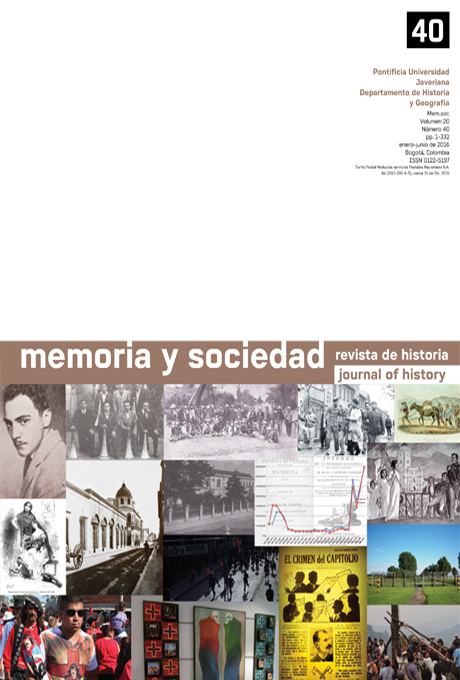Abstract
Driven by the Bourbon Dynasty, Spain tried
to strengthen the state apparatus and widen
the scope of its functions in its American
domains. One of the results this had was the
decision of the Crown to assume the management
and control of the mail system, which
brought substantial improvements in the expansion
of the routes and reduction of the
travel time, but some flaws and issues were still
evident. This work attempts to examine the
obstacles that hindered the proper operation
of the postal service in the framework of the
reforms implemented halfway the 18th century
by Commissioner Joseph Antonio de Pando,
namely: fraud, delays, violations; interceptions;
and loss of letters and parcels. These obstacles
led to a loss of prestige for the sector, and were
an additional sign of the weakening and crisis
of the colonial politic – administrative regime.
The journal Memoria y Sociedad is registered under a Creative Commons Attribution 4.0 International Public License. Thus, this work may be reproduced, distributed, and publicly shared in digital format, as long as the names of the authors and Pontificia Universidad Javeriana are acknowledged. Others are allowed to quote, adapt, transform, auto-archive, republish, and create based on this material, for any purpose (even commercial ones), provided the authorship is duly acknowledged, a link to the original work is provided, and it is specified if changes have been made. Pontificia Universidad Javeriana does not hold the rights of published works and the authors are solely responsible for the contents of their works; they keep the moral, intellectual, privacy, and publicity rights.
Approving the intervention of the work (review, copy-editing, translation, layout) and the following outreach, are granted through an use license and not through an assignment of rights. This means the journal and Pontificia Universidad Javeriana cannot be held responsible for any ethical malpractice by the authors. As a consequence of the protection granted by the use license, the journal is not required to publish recantations or modify information already published, unless the errata stems from the editorial management process. Publishing contents in this journal does not generate royalties for contributors.

